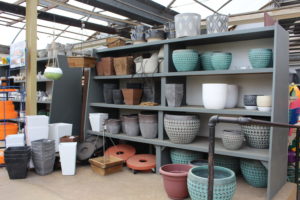Staying Above the Cut
A year ago, when customers called and said they needed something trimmed, it usually meant they wanted their lawns mowed, shrubs clipped or trees pruned. These days, the phrase has a whole new meaning. Clients are sharpening their pencils and reworking their finances to reduce costs and ease the pressure on their incomes. Your business’ No. 1 job now is to do what it takes to keep customers from crossing your line off their budget.
While it’s always wise to keep your ear to the ground and try to anticipate what may be coming down the road, this is also a time to look around and take into account the things that haven’t changed. Those are some business fundamentals that you can use as guideposts to help navigate the choppy waters of our new economy.
Understand Human Nature
The other day I dropped off some dry cleaning at a store that was under new management in a nearby strip mall. I had a jacket that needed to be cleaned, and as I handed it over the counter, I mentioned that I was having trouble with the lining. The owner took the jacket, opened it up and asked me to describe the problem. I told him that the fabric seemed to have stretched and was hanging low in the back. He studied the area and suggested a couple of ideas about how he could fix it. I was in a hurry, so I halfway listened and nodded, telling him to see what he could do.
When I returned to pick up my order, he greeted me by name and retrieved my nicely cleaned and pressed jacket. He opened it up to show me how he treated the lining with a special process that solved the problem. I was delighted. When I asked him what I owed him for that, he smiled broadly and said, “No extra charge.” I shook his hand and thanked him.
As I left, I had already decided that I would return. And since then, each time I have dropped off my clothes, I have received that same kind of great service.
That’s what I mean by understanding human nature. We all want to frequent businesses where people are friendly, pay attention to our needs, provide us with the service and products we expect, and even go out of their way to help. I don’t know how much it cost the owner to fix the lining in my jacket, but the return on his investment has been paid by my loyalty to his business.
Go the Extra Mile
So what does that mean for you? Make this the Year of Customer Appreciation. Rather than expecting customers to call you to request services, be proactive and call them first. Ask them what their needs are for the spring season and listen carefully. Then suggest ways that you can give them added value for maintaining contracts at the same level or even more. If they are busy or hard to reach by phone, consider hanging a brochure on the front door or sending them a mailer and following up later. Be ready if they tell you they need to cut back by offering options in different price ranges.
Just like the owner who fixed the lining in my jacket, helping customers solve a problem is a great way to foster their loyalty. For example, you may have clients that employ you to refresh the bedding plants in their landscape three or more times over the growing season. Rather than have them drop your service, offer to use vigorous, long-lasting annuals that hold up and keep their appearance longer. In some of my installations, plants such as Supertunia petunias have been excellent performers that grow for months and look great. Plants like these can also curb costs if you need to reduce your workforce they require less upkeep and maintenance, which means fewer visits from your crews.
While you are working on a client’s property, look around for ways to do a little something extra for them. For example, while your crew is raking leaves out of beds and preparing the area for planting, have them do some light pruning at no additional charge if they notice that winter storms have damaged shrubs in the area. Haul away limbs or take the time to ask them what else they may need. As my mother often said, “Don’t just stand there; make yourself useful!”
Another part of human nature is that in challenging times people look for ways to pull together. So if you own a garden center, don’t hide your head in the sand! Stay connected to the pulse of the community, and get involved in positive ways. Make sure you and your place of business reflect a hopeful attitude. Garden centers are uplifting places full of color and life, so encourage that spirit with light-filled shops in bright colors and a friendly staff. People are looking for hope, so let them know that’s what you are selling.
Explore New Avenues
The other guidepost to lean on in challenging times is that adversity often opens doors to new opportunities. When your business is humming along, it is easy to fall into a rut and become complacent, content just doing more of the same each year. But as you see your revenue streams dry up, it’s time to mine the area for some new sources of income. For example, many neighborhoods are seeing more and more vacant houses because of foreclosures. As we all know, the value of a home is greatly affected by its curb appeal. Consider reaching out to banks or companies holding these properties to offer your services to maintain the yards and keep them from looking abandoned. Cities and towns might be willing to support the effort if they are concerned about the general appearance of their community.
Also, in both good and bad times, people will always need to move, and homeowners are always eager to get the best price for their property. Contact realtors to see if they have listings that could use a quick curbside sprucing-up prior to an open house. They may also need assistance maintaining properties that stay on the market after the owners move on. In some areas, there are active neighborhood associations that may be concerned about the look of vacant properties and how that impacts the value of their homes. Offering your services at a discounted rate could help you generate business with others still living in the area.
Another sure thing is that life goes on. There will still be weddings, graduation parties and social functions. Rather than renting halls or hotel suites, people may be looking for ways to reduce costs and hold special events in parks, public areas or at home. Contact local bakeries, caterers or party-supply rental companies and inquire about working with them to offer services such as a pre- and post-event yard cleanup, rented potted containers or tabletop accents. You might also be able to help put up lights and decorations.
A few years ago, there was a trend toward do-it-yourself gardening projects, and people flocked to workshops to learn how to design shrub borders and pot up containers. Next came harried homeowners with more money than time who wanted someone to do all that for them. More recently, with Americans fretting over global warming and high food prices, the buzz is “grow-it-yourself.” There is a resurgence of interest in local food and fresh garden vegetables. As these trends change, the retailers and landscape companies that adapt to their customers’ needs will continue to thrive. That flexibility coupled with exceptional service is the hallmark of companies that will best navigate the ups and downs of these changing times.


















 Videos
Videos





